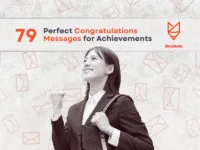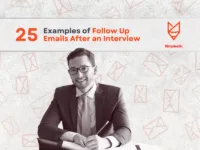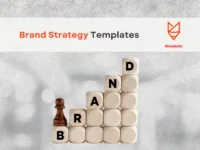Job Inquiry Email Examples: Nail Your Job Search | Reaching out to a potential employer can be a key step in landing your dream job. Whether you are looking to follow up on an application or inquire about job openings, crafting a good email is essential. Effective job inquiry emails can set you apart and open doors to new opportunities.
In this blog post, you will find various examples of job inquiry emails. These templates will guide you in writing your own message that conveys professionalism and clarity. You can customize them to fit your style and make a strong impression.
A well-written job inquiry email not only showcases your interest but also demonstrates your communication skills. By using the right language and format, you can grab the attention of hiring managers and increase your chances of getting a response.
Essentials of a Job Inquiry Email
Writing a job inquiry email requires specific strategies to ensure that your message is clear and professional. Focus on important elements such as the subject line, salutations, and how you start your email.
Job Inquiry Email Subject Line
Your subject line should be direct and informative. It should give the recipient a clear idea of the email’s content.
Consider using formats like:
- “Inquiry About Job Opening – [Job Title]”
- “Job Inquiry: [Your Name] for [Job Title]”
Keep it concise and relevant. Avoid vague phrases that don’t indicate purpose. This helps your email stand out and ensures it is opened and read promptly. A strong subject line sets the tone for the rest of your message.
Appropriate Salutations
Start your email with a polite salutation. Address the hiring manager or recruiter by their name if you know it. Use “Dear [Name]” for a formal touch.
If you don’t know the name, use “Dear Hiring Manager.” Always avoid informal greetings like “Hey” or “Hi there.”
A respectful salutation shows that you take the inquiry seriously. It also establishes a professional tone for your email.
Email Opening and Purpose
Begin your email by stating your intention clearly. Express your interest in a specific job opening or inquire about potential positions.
Example: “I am writing to inquire about potential job openings in your marketing department.” This clarity helps the recipient understand your purpose right away.
Include a brief introduction about yourself, focusing on your relevant experiences or skills. This approach allows you to make a strong first impression and encourages the reader to continue.
Crafting the Body of Your Job Inquiry Email
When writing the body of your job inquiry email, focus on clear and direct communication. Your email should convey genuine interest, highlight your skills, and demonstrate how you can add value to the company.
Expressing Interest in the Company
Start by clearly mentioning the company name. Show that you have researched the organization. You might say, “I admire your commitment to innovation in the tech field.”
Express excitement about potential job opportunities. Use specific details, such as recent projects or initiatives by the company. For example, mention how these efforts align with your values or career goals.
Keep your tone upbeat and professional. This sets a positive mood for your email. Aim to establish a personal connection so the reader knows you are genuinely interested.
Showcasing Relevant Skills
Next, focus on the skills that make you fit for the role. Choose 2-3 key skills relevant to the job.
For instance, if you’re applying for a marketing position, you could say, “I have three years of experience in social media management, where I increased engagement by 40%.”
Be specific and use numbers or examples when possible. This helps the reader see the direct impact of your skills. Keep descriptions short and focused on what you can bring to the table.
Job Inquiry Email Example
Articulating Your Value
Finally, explain what you can contribute to the team. Highlight how your experience matches the job and the needs of the company.
You might write, “With my background in data analysis, I can help the team make informed decisions.” Focus on how hiring you will benefit the company. Use assertive language to demonstrate your confidence. Make sure to align your message with the company’s goals and culture. This connection makes your email stand out.
Supporting Documents
When applying for a job, including supporting documents is essential. These materials help show your qualifications and professionalism.
Resume and Cover Letter Best Practices
Your resume is a key document. It should highlight your skills, experience, and education. Keep the layout clean and simple. Use bullet points to make information easy to read. Choose a readable font and keep the length to one page, if possible.
Your cover letter should introduce you and explain why you want the job. Customize it for each position by mentioning the company name and specifics about the role. Keep it to one page. Make sure to proofread both documents to avoid typos.
Reference Letters and Portfolios
Reference letters can add weight to your application. They should come from former employers or mentors who can speak positively about your skills. Ask for permission before using someone’s name. Ideally, keep the references relevant to the job you’re applying for.
A portfolio showcases your work. It’s especially important for creative jobs. Include samples that highlight your best work. Organize the portfolio neatly, either in digital format or in a binder. Be sure to label each piece clearly, explaining your role in the project.
Job Inquiry Email Example
Concluding Your Job Inquiry Email
Wrapping up your job inquiry email is just as important as the opening. A strong conclusion encourages a response and leaves a positive impression. Focus on making your closing clear and professional.
Call to Action
In this part of your email, you should invite the recipient to take the next step. A well-crafted call to action shows your interest and encourages engagement. You might say something like, “I would love to discuss this position further and am available for a call at your earliest convenience.” Be direct and specific about what you’d like. If possible, suggest a couple of times when you can talk. Also, let them know you’re looking forward to their response. This approach creates a sense of urgency and keeps the conversation going.
Professional Sign-Off
Your sign-off is the last thing the employer will see, so make it count. Use a professional closing phrase like “Best regards,” or “Sincerely,” followed by your name. Make sure to include your contact information under your name, like a phone number or LinkedIn profile, to make it easy for them to reach you.
Consider adding a polite line before the sign-off. Something simple like “Thank you for your time” shows appreciation. A professional sign-off reflects your respect for the recipient and can leave a lasting positive impression.
Professional Job Inquiry Email Templates
Email Example 1: Job Inquiry for Marketing Position
Subject: Job Inquiry – Marketing Assistant Position
Dear [Hiring Manager’s Name],
I hope this message finds you well. I am writing to express my interest in the Marketing Assistant position listed on your website. With my background in digital marketing and strong communication skills, I believe I would be a great fit for your team.
Thank you for considering my application. I look forward to your response.
Best regards,
[Your Name]
[Your Contact Information]
Example 2: Request for Informational Interview
Subject: Informational Interview Request
Hi [Contact’s Name],
I am eager to learn more about your work at [Company Name]. As a recent graduate in [Your Field], I would appreciate any insights you can share regarding your career path. Would you be open to a brief chat over coffee or a video call?
Thank you for your time. I hope to hear from you soon!
Sincerely,
[Your Name]
[Your Contact Information]
Example 3: Follow-Up After Job Application
Subject: Follow-Up on Job Application
Dear [Hiring Manager’s Name],
I wanted to follow up regarding my application for the [Job Title] position submitted on [Date]. I remain very interested in the opportunity and believe my skills align well with your needs.
Thank you for considering my application, and I look forward to any updates you can provide.
Warm regards,
[Your Name]
[Your Contact Information]
15 Job Inquiry Email examples
1. General Job Inquiry Email
Hello [Name],
I hope you’re doing well. I’m reaching out to inquire about potential opportunities within your organization, as I admire the work your team is doing. My background includes experience in collaborative and fast-paced environments, and I’m eager to contribute where my skills can add value. If there are any current or upcoming roles you recommend exploring, I would truly appreciate your guidance. Thank you for your time and consideration.
2. Job Inquiry After Discovering the Company Online
Hi [Name],
I recently came across your company while researching organizations that focus on meaningful impact, and I was genuinely impressed by your mission. I’m writing to ask if there are any openings or upcoming opportunities that may align with my background. I enjoy contributing to teams that value innovation and thoughtful communication. I would be grateful for any direction or advice you can share. Looking forward to connecting.
3. Networking-Based Job Inquiry
Dear [Name],
It was a pleasure connecting with you recently. Our conversation encouraged me to learn more about your team and the work you’re building. I wanted to follow up to see if there are any roles or projects where my experience could be helpful. Even general insight into future opportunities would mean a lot. Thank you again for your time and support.
4. Job Inquiry Email After a Conference or Event
Hello [Name],
I enjoyed hearing your insights during the recent event and felt inspired by the direction your organization is taking. I’m reaching out to inquire whether your team anticipates any hiring needs in the near future. I’m particularly interested in contributing to collaborative environments where growth and learning are valued. If appropriate, I would be happy to share more about my background. Thank you for your time.
5. Polite Cold Job Inquiry Email
Hi [Name],
I hope this message finds you well. I’m reaching out to introduce myself and explore whether your organization might have any roles available that align with my professional interests. I’ve been following your work and appreciate the thoughtful approach your team brings to its projects. If there’s someone I should connect with or a process you recommend, I would be grateful for your advice. Thank you in advance.
6. Job Inquiry Email Showing Interest in Team Culture
Dear [Name],
I’ve been researching workplaces known for strong collaboration and supportive leadership, and your organization consistently stands out. I’m writing to inquire about any opportunities where I could contribute while continuing to grow professionally. My goal is to join a team that values thoughtful communication and shared success. I would welcome any guidance you can offer. Thank you for considering my message.
7. Short Follow-Up Job Inquiry
Hello [Name],
I hope you’re doing well. I wanted to follow up on my previous message and check whether there might be any suitable openings or upcoming opportunities within your team. I remain very interested in contributing my skills in a meaningful way. Please let me know if there is a better contact or next step I should consider. Thank you again for your time.
8. Job Inquiry Email Requesting Informational Conversation
Hi [Name],
I’m currently exploring new career directions and would truly value the chance to learn more about your organization. While I understand there may not be active openings, I would appreciate any insight you could share about your team’s work or future needs. Even a brief conversation would help me better understand where I could contribute. Thank you for your consideration.
9. Job Inquiry Email Highlighting Transferable Skills
Dear [Name],
I’m reaching out to inquire about potential opportunities within your organization. My experience has allowed me to build strong communication, coordination, and problem-solving skills that translate across many roles. I’m especially interested in environments that encourage collaboration and thoughtful decision-making. If there are any areas where you believe my background might align, I would appreciate your guidance. Thank you for your time.
10. Job Inquiry Email to Hiring Team
Hello Hiring Team,
I hope you’re having a great week. I’m writing to inquire about current or upcoming opportunities within your organization. I value workplaces that prioritize innovation and clear communication, which is why your team stood out to me. I would be happy to share additional information about my background if helpful. Thank you for considering my inquiry.
11. Job Inquiry Email Expressing Long-Term Interest
Hi [Name],
I’ve followed your organization’s growth for some time and admire the direction your team continues to take. I’m reaching out to ask whether you anticipate any future openings that I might prepare for. My goal is to contribute to an environment where thoughtful collaboration drives meaningful results. I would appreciate any advice you’re willing to share. Thank you for your time.
12. Job Inquiry Email After Seeing a Team Expansion Announcement
Dear [Name],
I recently noticed that your organization is expanding, and I wanted to reach out to express my interest in potential opportunities. Growth like this often signals exciting new projects, and I would love to explore how my background could support your team’s goals. If there’s a hiring timeline or contact you recommend, I would be grateful to learn more. Thank you for your consideration.
13. Job Inquiry Email Focused on Learning and Contribution
Hello [Name],
I’m currently exploring roles where I can continue learning while contributing meaningfully to a team. Your organization’s work reflects values that resonate with me, and I wanted to ask if there may be opportunities to collaborate or join your team. Even general guidance about the application process would be greatly appreciated. Thank you for your time.
14. Job Inquiry Email Requesting Future Consideration
Hi [Name],
I hope you’re doing well. While I understand that there may not be immediate openings, I wanted to introduce myself and express interest in future opportunities with your organization. I’m always looking for environments where thoughtful communication and teamwork are valued. Please feel free to keep my information on file if appropriate. Thank you for your time and consideration.
15. Respectful Direct Job Inquiry
Dear [Name],
I’m writing to inquire whether your organization is currently seeking new team members or planning future hiring initiatives. I’m interested in contributing to a team that values clarity, collaboration, and meaningful impact. If you’re open to a brief conversation or can suggest the best way to apply, I would truly appreciate your guidance. Thank you for your time and support.
Follow-Up Strategy
Following up on a job inquiry is important. It shows your interest and can help keep you in the employer’s mind.
Timing is Key
Wait about one week after sending your initial email. This gives the employer time to review applications.
Craft a Simple Message
Your follow-up email should be brief. Include these key points:
- Greeting: Address the recipient politely.
- Reminder: Mention your previous inquiry.
- Interest: Reaffirm your interest in the position.
- Thankfulness: Thank them for their time.
Sample Follow-Up Email
Here’s a simple structure you can use:
Here’s a simple structure you can use:
Subject Line:
Follow-Up on My Previous Message / Checking In
Greeting:
Hello [Name],
Opening Line:
Start with a polite reminder of your earlier message or interaction. Mention the context briefly so the reader remembers who you are.
Main Message:
Restate your interest or purpose clearly. Keep it short and respectful, acknowledging that they may be busy. Offer any additional information if helpful.
Call to Action:
Invite a response or suggest the next step, such as a quick chat, feedback, or confirmation.
Closing:
Thank them for their time and end with a professional sign-off like “Best regards” or “Thank you,” followed by your name.
Stay Patient and Polite
If you don’t get a response, wait another week or two before following up again. Always keep a positive tone.
Having a clear follow-up strategy can make a good impression. It shows that you are proactive and serious about the job.




